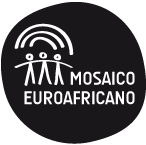November is a hot month in the Ghanzi District, maybe not the hottest time of year, but you get to 40 degrees. A dry heat, typical of desert areas, which reminded me to Reno, Nevada, where I lived, after graduating, to get a Master’s degree in environmental studies. The desert is chasing me or am I chasing it? Well… I like the barren land that wakes up with a single drop of water. When we arrived we were told that the rain has been missing for months, an unusual drought (global warming?). Trees are withered as animals, but nature is proud, ready to be born again on the first drop, and in fact an afternoon a thunderstorm comes, you can smell the scent of rain, a great pleasure that lasted only half an hour … and the next morning there were already green buds on the shrubs burned by the sun. The strength of life … to make it. And that ability to take advantage of the little and give it value. This was the most important lesson of my first encounter with Botswana. And the same goes for our children, timid and fearful in the first 5 minutes, smiling and loving, if you give them a caress, a kiss, or you offer a kind word. Capable, like their land, to magnify the little to appreciate a small gesture. I really like this aspect of Africa, and until it is contaminated by our culture, it will continue to give us life lessons, minimizing our dissatisfactions and frustrations. They are beautiful, our children are so beautiful, and they are just fine, happy, they are not able to pretend when they are so small, you instantly understand that the house of Paolo is a cozy and secure retreat. With Andy, we also met several people who live in the area, I remember two of them that struck me particularly: Father Slawomir and Uncle Dick. Father Slawomir is a Polish priest, he is 50, belongs to the Divine Word Missionaries congregation and works at St. Anna mission, in Ghanzi, in the Catholic Vicariate of Francistown. He has lived in Africa for 20 years, before he lived in Zimbabwe. In Ghanzi, with little money and a lot of hard work, he has set up akindergarten, which he manages organizing the work of teachers, cooks and so on and “scientifically” planning costs and expenses . Cecilia contacted him to help us with our school. He is enthusiastic, excited about his faith and his project of life. And how not to be excited after following his Sunday mass, songs and dances that anyone would enjoy, I have been crossed by a deep emotion that I have rarely experienced. At first, the father seemed a bit abstract … we told him that it’s hard to keep the school, it takes a lot of money, and he told us that this project is good and Providence would have shown us the way. Okay … Providence … But then when we ask him how he goes on, he becomes very concrete, he shows us accounts, brochures of the discount in the supermarkets … because “my dear, we must help Providence!” Uncle Dick is our “neighbor”, his property adjoins that of Edo’s camp and school. An elderly man, of English origin – his last name is Eaton – he fought for the Queen military aviation during World War II, lived in South Africa and after the war he moved to Botswana. He tells me that when he had arrived in Botswana there was nothing at all, and that with great effort he managed to get water, roads, electricity and raise livestock. Today, with his son Clive is one of the leading breeders of Botswana. His house is a green oasis, it reminds the colonial houses, with the white refugees in their private paradises, surrounded by the wild Africa. A very exciting jump in the past. Uncle Dick was also perhaps the only white local to help and advise Cecilia at the beginning of her projetc. It seems to me a wise man, brilliant, able to understand what we are doing, though perhaps he – a pragmatic and stubborn man – would never have never done something like this. White people in Africa are indifferent to local populations. This land is hard … “every man for himself”, difficulties and sacrifices have hardened their hearts, there is no time to take care of these poor little Bushman, they have been here forever and have always lived like that, they will make it. But there is a limit, a minimum of dignity. And there is a duty we have: that these children learn to defend themselves. Only for the dignity, which cannot be denied to any living being.





No Comments to "40 degree in November"